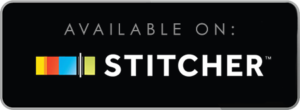Do you struggle with keeping realistic expectations? In this episode of the Maximum Lawyer Podcast, Tyson and Jim share their insights on unbridled optimism and how it relates to the field of law.
In this episode, Jim and Tyson interview Marisa Portuondo, a solopreneur who runs her own business law practice in Miami, Florida. They will go over her journey as a lawyer and entrepreneur paying special attention to her marketing and discussing ways to improve it. Also, her biggest struggles and the value of assistants.
[smart_track_player url="http://traffic.libsyn.com/maximumlawyer/Episode_109.mp3" social_linkedin="true" social_pinterest="true" social_email="true" ]
Marisa does basically everything for business owners: that is transactional or litigation. That has branched out into construction, because a lot of her clients are in the construction industry. Recently she started doing property damage.
Her Firm: Portuondo Law Firm
03:14 - Experience
Marisa has a lot of experience in small firms and learned many valuable lessons about running a law firm: “I learned a lot about how to run a law firm and how NOT to run a law firm from the different bosses that I had.”
03:59 - 1st Day as a Solo
“I just thought, I don’t even know how to get clients! Marketing has changed so much since then... ”
05:17 - Marketing
“Whenever they think about a property claim they think of me, because they don’t know any other property claim attorneys.” Main marketing is word of mouth
08:39 - Her Struggles
Marisa’s biggest struggle is that there’s just never enough time. Marisa has a background in information systems, so she’s now implementing automation and starting to see how much more efficient she’s becoming.
09:57 - Her team structure
They will go over Marisa’s team and her new mindset about virtual assistants.
12:44 - Technology
Marisa’s main software is Practice Panther
14:30 - Flash Forward
“I don’t know if I ever want to become a big firm. I don’t know if that’s the lifestyle that I wanna lead.”
15:30 - Why do Marisa does what she does
“I just love helping business owners… I’ve learned a lot about business and I love sharing that information”
16:53 - The Advice
Get staff earlier!
20:01 - Hack and Tips of the week
Hacking’s hack: Jim’s been listening to James Schramko and he has a tutorial named “Own The Racecourse” The best articulation of the mindset that you should have when creating content.
Marisa’s tip: Automation. Get it done. Dig in into your software and automate. If you don’t have one, get one.
Tyson’s tip: Tyson’s in the process of hiring 2 new employees and has one very simple piece of advice: make sure that you have the job applicants make them send you a copy of the resume in pdf format. That simple thing is gonna weed out the people who can’t do that single and simple task.
//
Thanks so much for listening to the show! If you want to know more about this and keep on maximizing your firm, please join our Facebook Group or like us on Facebook and comment!
You can also go to MaximumLawyer.com or, if you’d prefer, email us at: [email protected]
Do you want to get on the show? Shoot us an email or message us!
The Maximum Lawyer Podcast. Partner up, and maximize your firm.
Guild Membership
Free Access to Stage 1 of Maximum Lawyer in Minimum Time
Sign Up Today!Customer Reviews
4.9 out of 5
Join Our Facebook Group
Enjoy Exclusive Access To Stage One Of The Maximum Lawyer In Minimum Time Course
Privacy Policy
This privacy policy has been compiled to better serve those who are concerned with how their ‘Personally Identifiable Information’ (PII) is being used online. PII, as described in US privacy law and information security, is information that can be used on its own or with other information to identify, contact, or locate a single person, or to identify an individual in context.
Please read our privacy policy carefully to get a clear understanding of how we collect, use, protect or otherwise handle your Personally Identifiable Information in accordance with our website.
What personal information do we collect from the people that visit our blog, website or app?
When ordering or registering on our site, as appropriate, you may be asked to enter your name, email address or other details to help you with your experience.
When do we collect information?
We collect information from you when you register on our site, place an order, subscribe to a newsletter, Use Live Chat, Open a Support Ticket or enter information on our site.
How do we use your information?
We may use the information we collect from you when you register, make a purchase, sign up for our newsletter, respond to a survey or marketing communication, surf the website, or use certain other site features in the following ways:
- To personalize your experience and to allow us to deliver the type of content and product offerings in which you are most interested.
- To improve our website in order to better serve you.
- To allow us to better service you in responding to your customer service requests.
- To quickly process your transactions.
- To send periodic emails regarding your order or other products and services.
- To follow up with them after correspondence (live chat, email or phone inquiries)







